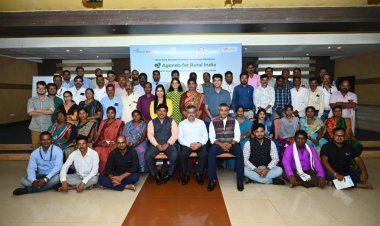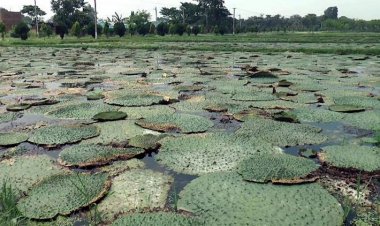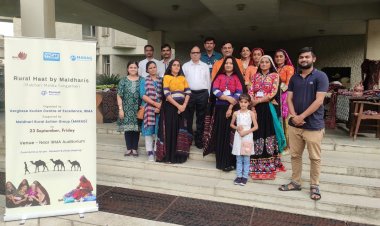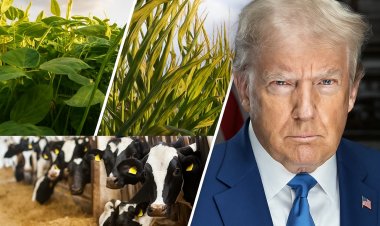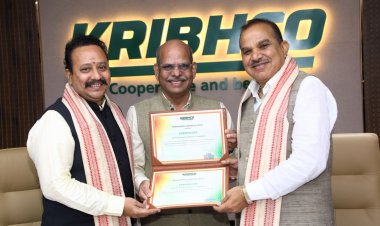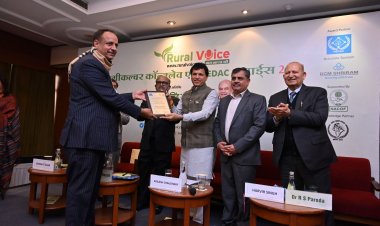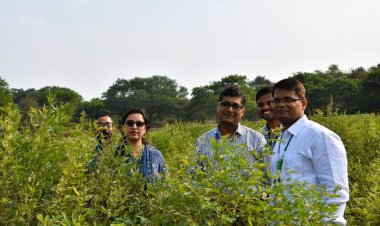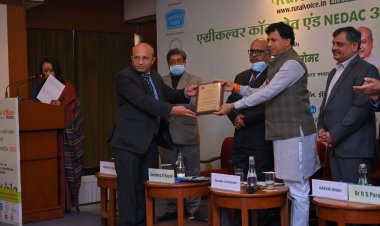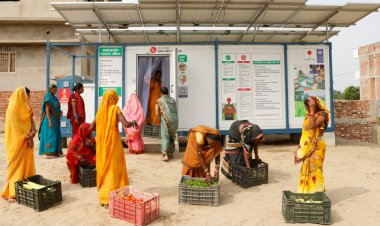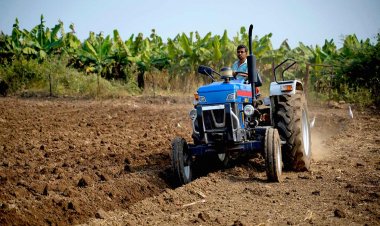Padma Shri for farmers Seth Pal Singh and Amai Mahalinga Naik
The Padma awards, which count among the highest civilian awards in the country, have been announced. The list comprises four Padma Vibhushan, 17 Padma Bhushan and 107 Padma Shri awards this year. Two progressive farmers figure among the Padma Shri awardees. One of them is “Tunnel Man” Amai Mahalinga Naik from Mangaluru in the Dakshina Kannada district of Karnataka and the other is Seth Pal Singh from the Nandi Firozpur village of the Saharanpur district in UP.
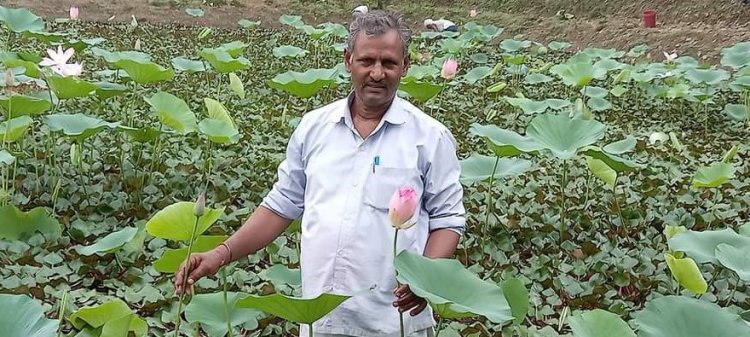
The Padma awards, which count among the highest civilian awards in the country, were announced on the eve of Republic Day. The list comprises four Padma Vibhushan, 17 Padma Bhushan and 107 Padma Shri awards this year. Two progressive farmers figure among the Padma Shri awardees. One of them is “Tunnel Man” Amai Mahalinga Naik from Mangaluru in the Dakshina Kannada district of Karnataka and the other is Seth Pal Singh from the Nandi Firozpur village of the Saharanpur district in Uttar Pradesh (UP). The awards will be given in a ceremony organized in the Rashtrapati Bhavan in March-April.
Seth Pal Singh: An expert at experimentation and diversification
Seth Pal Singh’s younger brother Vinod Kumar said that the 54-year-old farmer’s family, consisting of six brothers, has about 40 acres of land. Earlier they did traditional farming. In 1995, when Seth Pal thought of doing something new in farming, he started going to the Krishi Vigyan Kendra (KVK) at Saharanpur where he learned about various new agricultural methods from the agriculture scientists. Said Vinod Kumar, “What is good about Seth Pal Singh is that he is not afraid of trying out any new experiment in farming because he believes farmers can’t make progress until they do something new.”
Initially, Seth Pal Singh started growing crops like flowers, fruits and vegetables along with traditional crops. His interest grew further after training and workshop at KVK. He adopted agriculture diversification. He has grown water chestnuts in his field instead of ponds and made a good profit, too. He never burns stubbles and his soil does not lack nutrients. He installed units of vermicomposting and NADEP composting (a method of organic composting named after Narayan Deotao Pandharipande of Maharashtra) in his field.
Seth Pal has been into multi-cropping and relay cropping for years. Among vegetable crops, he grows bitter gourd (karela) followed by bottle gourd (lauki) and then spinach. In one year, he thus grows one vegetable after another and makes a profit of about four lakh rupees per acre. Other farmers saw the benefits of his way of farming and emulated him.
Besides pisciculture, animal husbandry and growing vegetables, Seth Pal also grows lotus flowers and mushrooms. He has adopted methods of inter-crop farming and worked a lot for farmers in his region. Along with sugarcane, he grows French beans, urad, moong, onion, fennel, potato, mustard, masur and turmeric as co-crops. His contribution to organic farming is also substantial.
When the Padma Shri news reached his village on Tuesday February 25, everyone got happy. Farmer Seth Pal Singh said, “Not only did I do advanced farming but also created awareness among other farmers.” It was his labour along with new technology in farming that the Padma Shri honour rewarded.
Seth Pal Singh has been recognized earlier with awards at the national level for his innovative experiments. These include Jagjivan Ram Abhinav Kisan Puraskar from the ICAR in 2012 and other awards from the august body in 2014 and 2020.
Amai Mahalinga Naik: His labour and dedication turned barren, rocky land green
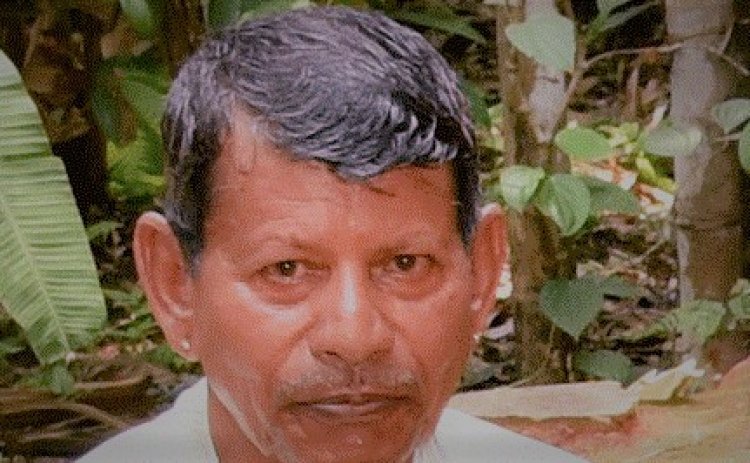
Amai Mahalinga Naik, the other farmer on the Padma Shri list, is 72 years old. He single-handedly worked to irrigate his two-acre land and succeeded in raising a small plantation on a hill near Adyanadka, 50 km southeast of port city Mangaluru. Besides labour, the project is also a testimony to foresight and eco-friendliness.
Once a farm labourer, Naik took up the task of irrigating the rocky two-acre land all on his own. It is by dint of his own labour that he has turned the barren land into a beautiful farm with more than 300 areca nut palms, 75 coconut trees, 150 cashew trees, 200 banana saplings and pepper vines.
Only dry grass was visible on his farm earlier. There was nothing extraordinary about Naik. The dry grass found in the surroundings corroborate this. Naik used to eke out a living by plucking areca nuts and coconuts. A landlord, Mahalinga Bhat, was pleased with his sincerity and gifted him a barren land in 1978. Naik built a hut on the two-acre land and began to reside there with his wife and children. The land was on a hill and the biggest trouble was the slope. There was no water and even if it became available, it could not be retained. And water was essential to grow crops on this land.
Naik could think of water retention only when there would be water first. The problem was how to get water there. His gut instinct told him that this could be achieved through a tunnel. Only then could he realize his dream of having a lush, green farm where he could grow crops as he wished. He took up the task single-handedly. He toiled for water, still he did not know if he would find it. Continuing with his work in others’ fields, he began to dig tunnels in his own fields because he wanted to bring water there at whatever cost.
Villagers, who were keenly following the progress of his tunnels, declared that Naik was on a fool’s errand. But he ignored their criticism. If water remained elusive even after he had dug a tunnel, he did not stop. Failure could not deter him. He kept on saying, “There shall come a day when this place will have enough water for greenery.” Fortune favoured him. He became successful in bringing water in his fifth attempt.
The next requirement was to make level flat plots out of the sloping hill for farming. The job would require stones but there were none in the vicinity of half a kilometre. Naik single-handedly carried over 6,000 laterite stones from his workplace to build retaining walls and prevent soil erosion in his farm. He did this job rock by rock every single day as he returned from his daily work. The same work would have taken 200 man-days and an amount of one lakh.
The farm that stands today on what was a barren, rocky hill is not only a thing of joy for Naik but also a source of inspiration for all of us. The Padma Shri is an apt recognition of this labour and devotion.



 Join the RuralVoice whatsapp group
Join the RuralVoice whatsapp group

















